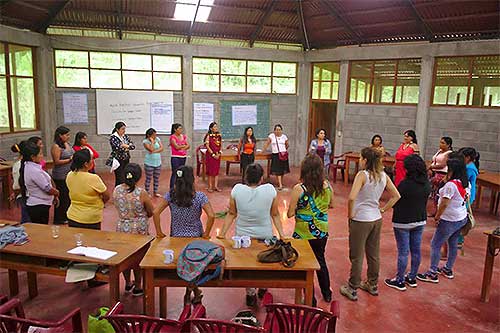News
First Meeting of Awajún and Wampis Women of the High Marañon Basin

On October 29, 30 and 31, the First Meeting of Awajún and Wampis Women of the High Marañon Basin was held in Pampa Hermosa (Nieva). This was a new and original space for the women of these communities to dialogue and identify common problems. Nearly twenty women traveled from nearby communities like Kanus (Río Santiago) to Imaza, Nieva, to participate in the meeting.
The obstacles are numerous, among the most urgent to overcome, the Nuwas (women in Awajún language), pointed out the need for more training to improve their economic activities. Most of them are in charge of giving economic support to their families. In addition, the different forms of violence suffered by young girls and women were highlighted. From the marginalization in terms of education, to teenage pregnancy, sexual violence and child abandonment. These situations contribute to women’s inequality and vulnerability.
After this difficult process of identification, the participants built an agenda of activities to establish a joint work. A statement was also made urging local, regional and national authorities, as well as other institutional actors from civil society and private entities, to work on the problems identified. You can read the document here (in Spanish). The statement was presented during a public ceremony held in Nieva’s main square, with the support and presence of representatives of the local government that confirmed their commitment to the women’s requests.
Another important achievement was the set-up of the Council of Awajún and Wampis Women of the High Marañón Basin "Umukai - Yawi" (Guilt in Awajún Language). Its new president, María Luzmila Bermeo Chumba, highlighted the importance of this event, and invited the women of the region to join the following activities of the council. Decentralized meetings will be held and a second meeting is planned for the first semester of 2018. Micaela Guillen Ramirez, coordinator of the human rights and governance area at SAIPE and coordinator of this meeting, emphasized the need to organize and articulate the work with the local institutions to act urgently and effectively to solve the problems faced by women. He outlined that SAIPE will continue to support and accompany the fight of the Awajun and Wampis women.